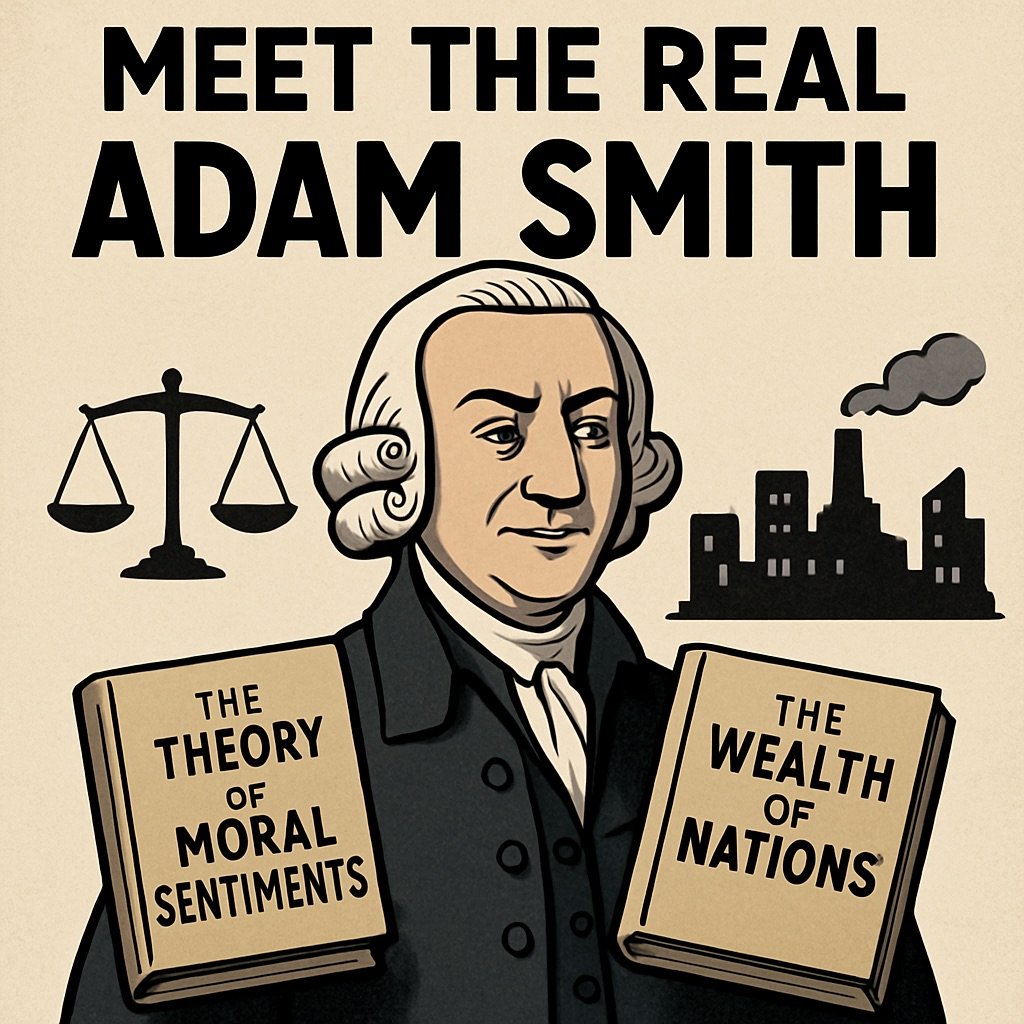
Adam Smith
Adam Smith trusted in the power of markets. But more importantly, he trusted in the moral imagination of human beings.
He believed that sympathy, fairness, and a sense of justice would guide us — individually and collectively — to create societies that could thrive.
We have forgotten part of that vision.
But we can remember it.
We can rebuild it.
Because a better future doesn’t require us to invent something new. It requires us to complete the story we left unfinished.
The story we’ve traced so far is not a story of inevitable decline. It’s a story of choices — choices made, and choices still open to us.
We lost sight of Adam Smith’s full vision. But we can recover it.
And if we want markets that truly serve humanity — not just the privileged few — we must.
Because morality is not a luxury we add to an economy once it succeeds. It’s the foundation that allows success to be shared, sustained, and worthy.
Adam Smith believed that free markets, anchored by morality and competition, could create prosperity for all.
But he also knew that where moral sentiment and justice are weak, markets can be twisted into tools of extraction, exploitation, and entrenchment.
Today, one of the clearest examples of this corruption is found in a powerful force reshaping modern capitalism: private equity.
Adam Smith gave us a vision of free markets anchored in morality, justice, and public trust.
For a time, the world tried — imperfectly, unevenly — to walk that path.
But over the last two centuries, something changed.
Gradually at first. Then faster.
Until, today, we barely recognize the balance Smith worked so hard to describe.
We remembered the freedom.
We forgot the morality.
We celebrated self-interest.
We abandoned the impartial spectator.
In chasing the wealth of nations, we lost sight of the moral sentiments that made that wealth sustainable — and worth having.
After years of thinking deeply about human morality, Adam Smith turned his attention to another question: How do societies grow wealthy?
By the time The Wealth of Nations appeared in 1776, Smith had spent a lifetime studying not only philosophy, but law, politics, and commerce. He was deeply familiar with the systems that shaped people’s lives — and the systems that trapped them.
And he was convinced that the old ways weren’t working.
Before Adam Smith ever wrote about markets, he wrote about something much closer to home: our hearts.
In The Theory of Moral Sentiments (1759), Smith tackled the biggest question of all:
What holds human society together?
It’s not wealth.
It’s not laws.
It’s not power.
It’s something far more delicate — and far more powerful.
Our capacity to care about each other.
When most people hear the name Adam Smith, one image pops up almost instantly:
The father of capitalism.
Maybe you think of the invisible hand, gently guiding markets.
Maybe you think of self-interest, and the idea that by pursuing our own gain, we somehow benefit society.
Maybe you picture a wise old economist laying down the foundations for free markets, open competition, and the world we know today.
There’s just one problem:
That’s only half the story.